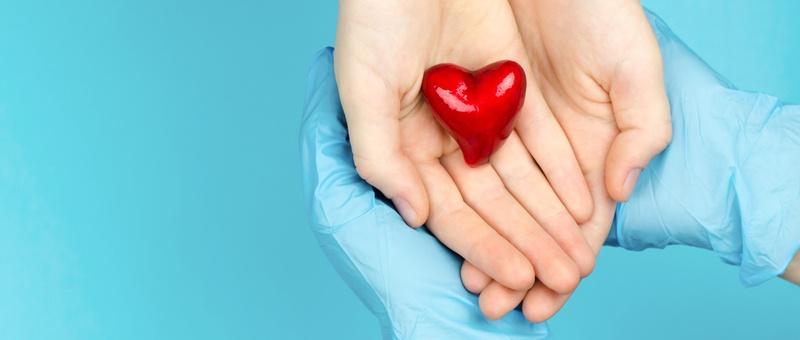
Wie Sie sich während der Krebsbehandlung und Chemotherapie selbst versorgen können
Peer reviewed by Dr Colin Tidy, MRCGPLast updated by Victoria RawLast updated 3 Jul 2025
Erfüllt die Anforderungen des Patienten redaktionelle Richtlinien
- HerunterladenHerunterladen
- Teilen Sie
- Sprache
- Diskussion
Wenn man sich von einer Krebserkrankung erholt, ist es wichtig, sich darauf zu konzentrieren, wieder gesund zu werden - was bedeutet, dass man sich dabei auch um sich selbst kümmern muss. Wir haben die Experten von Macmillan Cancer Care nach ihren besten Ratschlägen gefragt.
In diesem Artikel:
When going through cancer treatment, it's not just your body which is affected - it can also put a strain on your mental health. Constantly being in and out of the hospital, not knowing how you're going to feel day to day, and even telling people that you're going through treatment, can be anxiety-inducing for some.
Dany Bell, Strategic Advisor, Cancer Care, Macmillan Cancer Support explains these feelings can arise because of uncertainty over the future. "20% of people living with cancer are affected by depression, and 10% are affected by anxiety."
In a bid to get your body back to health, it can be all too easy to forget about what's going on in your head. But your mental health is just as vital as physical health when it comes to recovery.
Bell says: "It's important to acknowledge the impact your cancer diagnosis can have on your mental health and to seek support from a healthcare professional if you need it."
There is also a range of options when it comes to seeking mental health help outside of the walls of a doctor's surgery - whether that be over-the-phone, self-referral or mental health apps. It's best to speak with your healthcare provider to find out which option would be best for you and your current condition.
Bell adds that you can also speak about any concerns or questions with a Macmillan Cancer Support specialist on 0808 808 00 00 - seven days a week, 8 am-8 pm.
Lesen Sie unten weiter
Friends and family
Going through cancer treatment is scary in itself, but having to go through it alone can make it even harder. Making sure you have a good support network of loved ones around you can be really beneficial to your overall mood and progress.
Alternatively, if you know someone who is currently going through cancer, reaching out could help them more than you know. Even if it's something as simple as a text message.
Bell says: "Remember that your loved one is still the same person they always were, so spend time with them in the way you always have."
"When someone close to you is diagnosed with cancer it can be an overwhelming experience and it may not always be clear how you can best support them. Talking can help make sense of the difficult experiences your loved one is going through and help you understand how you can best support them."
Bell adds that another way you may offer support is to help them prepare for their medical appointments.
"Help them write or prioritise their questions and if they ask you to go with them, listen carefully to what the doctor says so that nothing is missed," she advises.
Home from home
Depending on the treatment you're receiving, it could mean spending a lot of time away in hospital. With short visiting hours and restrictive activities, you might think feeling lonely and uncomfortable is to be expected. But it doesn't have to be.
If you know that you're going to be admitted for a certain period of time, whether short or long, then prioritising your comfort will certainly help.
"While the necessities are provided, bringing your own toiletries, pyjamas and a book or magazine may make you feel more comfortable. Asking a friend or family member to accompany you may help you feel less anxious and give you someone you trust to talk with about any of your worries or concerns," Bell explains.
There is also the worry of how things are going to be run at home, particularly if you live alone. Again, reaching out for support - or being reached out to - can help to calm a lot of worries and stresses that are only going to be a hindrance through this time.
Bell says: "Often, it's small, practical things such as giving a lift, cooking a meal or picking up some information which can be really helpful."
Lesen Sie unten weiter
Care about self-care
At the end of the day your recovery is all about you, so you should be making yourself the priority. Keeping up a good, gentle health regime will work wonders for you in the long run. Making sure you're getting the right nutrition in between treatment sessions is vital and can really make all the difference.
"It's important to look after yourself during your treatment," Bell explains. "This means eating well, getting plenty of sleep and continuing to do the things you enjoy.
"Many people find keeping active, even by going for a short walk each day, can not only reduce anxiety and boost their mood, but help with feelings of tiredness or the side effects of treatment."
Feeling sick and tired after treatments is very common, so it can often be hard to maintain a varied diet constantly. At times like this, even just getting some calories into your body is better than nothing at all. Hearty foods such as soups, or readily available foods like bananas that are easy to eat and digest should be on hand for when you need them most. But most important of all is to keep your body hydrated with water, which can help combat any feelings of nausea or fatigue.
Wie kann ich mich während der Chemotherapie gesund ernähren?
Of course, cancer recovery is not necessarily straightforward. There will be dark days, painful days, sad days and, worst of all, scary days. The main thing to remember is that there is always support out there to help get you through, and that making yourself number one should be your number one.
Patient picks for Information about cancer

Krebs
Krebssymptome, die Sie niemals ignorieren sollten
Wenn es um unerklärliche medizinische Symptome geht, ist es leicht, den Kopf in den Sand zu stecken und sie zu ignorieren, vor allem, wenn es etwas peinlich ist, darüber zu sprechen. Sie von einem Arzt abklären zu lassen, könnte jedoch Ihr Leben retten. Hier sind die Krebssymptome, die Sie niemals ignorieren sollten.
von Lynn Stephen

Krebs
Wie es ist, mit Krebsmüdigkeit zu leben
Cancer fatigue is a common and debilitating symptom of cancer and cancer treatment. Each person's experience of cancer fatigue is unique, but hearing each other's stories can be valuable and comforting.
von Amberley Davis
Lesen Sie unten weiter
Artikel Geschichte
Die Informationen auf dieser Seite wurden von qualifizierten Klinikern geprüft.
Nächste Überprüfung fällig: 3 Juli 2028
3 Juli 2025 | Neueste Version
8 Apr 2019 | Ursprünglich veröffentlicht
Verfasst von:
Gemma Grange

Fragen, teilen, verbinden.
Stöbern Sie in Diskussionen, stellen Sie Fragen, und tauschen Sie Erfahrungen zu Hunderten von Gesundheitsthemen aus.

Fühlen Sie sich unwohl?
Beurteilen Sie Ihre Symptome online und kostenlos
Melden Sie sich für den Patienten-Newsletter an
Ihre wöchentliche Dosis klarer, vertrauenswürdiger Gesundheitsratschläge – geschrieben, damit Sie sich informiert, sicher und unter Kontrolle fühlen.
Mit Ihrer Anmeldung akzeptieren Sie unsere Datenschutzerklärung. Sie können sich jederzeit abmelden. Wir verkaufen Ihre Daten niemals weiter.